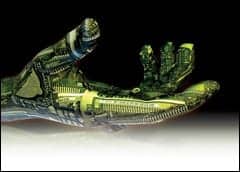NEW YORK (Reuters Health) – Different prostate-specific antigen (PSA) assays give different results on the same blood sample, according to German researchers. This, they say, is an obstacle to recommending uniform PSA limits for prostate biopsies.
"This study showed highly significant differences between total PSA and especially percentage free/total PSA, even within assays calibrated using the WHO standard," lead researcher Dr. Carsten Stephan, told Reuters Health.
Dr. Stephan and colleagues at Charity Medical University, Berlin examined the effect of different PSA results obtained with different assays in 596 untreated patients; 314 had prostate cancer, while 282 had no evidence of cancer.
Their findings appear in the June issue of BJU International.
The group had total PSA concentrations of 0.05-10 ng/mL, as determined by frequently used commercial assays from Abbott (AxSYM), Beckman Coulter (Access), DPC (Immulite 2000), and Roche (Elecsys).
At 90% sensitivity for detecting cancer, the threshold PSA levels for the different assays varied between 2.5 and 3.1 ng/mL.
Free PSA was calculated from total PSA minus complexed PSA, measured by Bayer’s ADVIA Centaur.
"When using fixed percentage-free PSA thresholds of 15%, 20% or 25%," Dr. Stephan continued, "the number of true-positive or true-negative patients correctly classified differed significantly by one third among the assays."
Therefore, Dr. Stephan concluded, "a better harmonization of PSA results among different assays is needed as an essential precondition when selecting final recommendations for total PSA or percentage free thresholds as indicators for biopsy."


